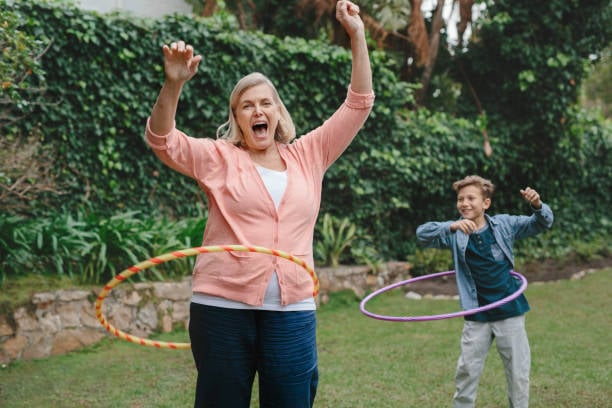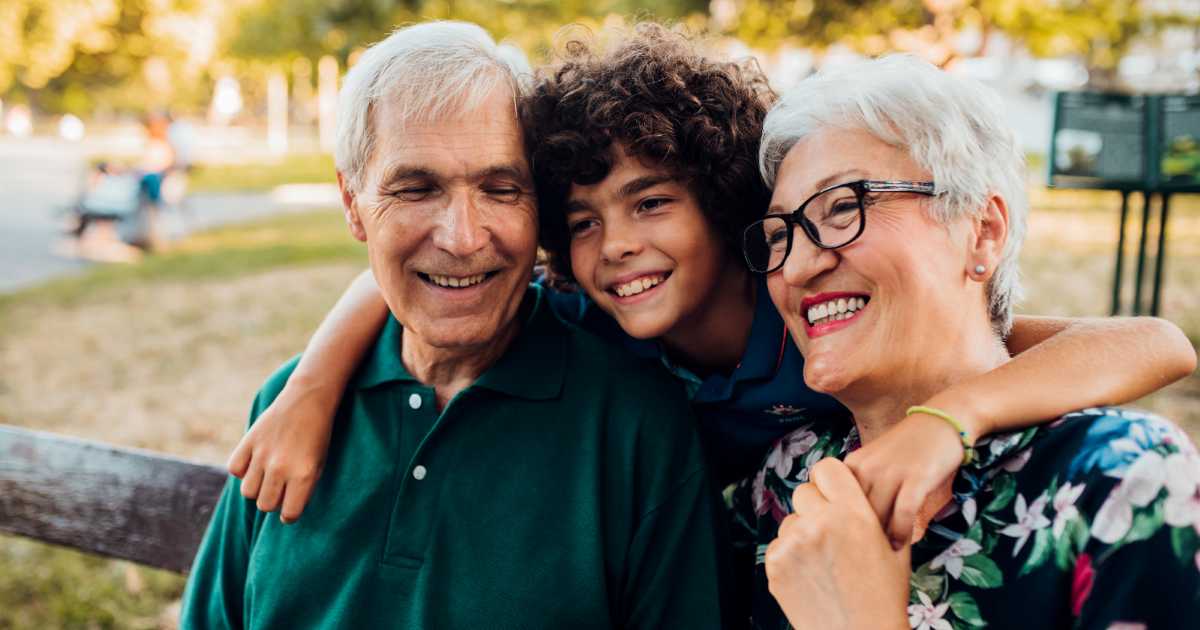A grandparent can either be one of the most important people in your life, or someone you barely know. And there’s usually a reason for that.
Most grandparents, whether they realize it or not, fall into certain styles of grandparenting. These patterns shape the kind of relationship they build with their grandchildren. Here’s a look at one style you may recognize:
The Caregiver Grandparent
On the other hand, some grandparents step into a very different role. These are the grandparents who become primary caregivers, raising their grandchild in their own home. Often this happens because of family challenges, like a divorce, health struggles, or difficult circumstances.
For many of these grandparents, caring full-time is not something they planned. But when their family needs them, they step up with courage and love—not just for the grandchild, but to support their own son or daughter too.
Still, being a caregiver grandparent can be tough. It sometimes leads to stress if too much is expected without enough appreciation. Even so, these grandparents pour their hearts into the role, proving once again how strong and selfless love can be.
Read Also: 4 Game-Changing Tips Every Grandparent Caregiver Needs to Know
The Formal Grandparent
Some grandparents prefer to keep a little distance. They love their grandkids, of course, but they also set clear boundaries.
They may not act like a buddy or a playmate. Instead, they see their role as more traditional, with respect and structure guiding how they interact.
Often, these grandparents want to be fair to every grandchild. If they have many grandkids, they might avoid showing favoritism. By keeping some emotional distance, they feel they can treat everyone equally.
This approach may not be as common today, but it still has value. A formal grandparent can bring a sense of stability and order to the family, reminding everyone of traditions and fairness.
The Family Historians
As grandchildren grow older, some grandparents take on the role of family historian. They’re the ones who pass down stories, traditions, and wisdom about where the family came from. They make sure the grandkids know their roots and feel connected to something bigger than themselves.
This role can also be a blessing for grandparents. Chasing kids around or playing games may feel harder with age, but sharing stories and lessons becomes their way of bonding. Sometimes they even open up about family secrets or difficult moments from the past—things they couldn’t share when the kids were younger. These conversations often create deep understanding and lasting closeness.
The Buddy Grandparent
Some grandparents are more like a best friend than an authority figure. These are the grandparents you can share secrets with, talk about your feelings, and know you’ll never be judged. A “buddy grandparent” listens with love, offers advice gently, and makes their grandkids feel safe to be themselves. With them, children learn how to open up, express their emotions, and grow into their own unique personality.
The Fun-Seeker

Then there are the fun-seeking grandparents—the ones who seem to have endless energy for adventures and play. These are the grandparents who will get down on the floor for hide-and-seek, spend the day at an amusement park, or take their grandkids to a museum just to explore and laugh together.
They may not handle the day-to-day routines, but when a birthday rolls around or a big moment like graduation comes, they swoop in ready to celebrate. Their goal is simple: make sure their grandkids know how to enjoy life and create memories that will last forever.
The Indulgent Enablers
Then there are the indulgent grandparents, the ones who believe that a little spoiling is the secret to strong relationships. They might say yes to extra dessert, laugh at silly choices, or bite their tongue when a grandchild’s decisions don’t match their own hopes.
Their goal is simple: keep the relationship full of love and free from judgment. But sometimes, this indulgence can rub parents the wrong way. If grandparents bend the rules—like allowing too much TV or sneaking sugary treats when parents said no—it can create tension.
Still, most indulgent grandparents act from a place of love. They want their grandkids to feel cherished and free to be themselves, even if it sometimes means walking a fine line between being supportive and stepping on a parent’s toes.
The Distant Ones
Not every grandparent is closely involved in their grandchild’s life. Sometimes it’s because of distance—living far away makes visits rare. Other times, it’s simply a choice. Some grandparents want to enjoy their independence and not be tied to child care.
There are also families where parents prefer to set limits on how much the grandparents are involved. In those cases, the grandparent may wish for more time with their grandkids, but they respect the parents’ wishes.
While it can feel sad when the relationship is distant, it doesn’t always mean there’s no love. Some grandparents cheer from afar, sending cards, phone calls, or warm wishes whenever they can.
Is there one style of grandparenting that is best?
The truth is, there isn’t just one “right” way to be a grandparent. Most grandparents find themselves shifting between styles depending on the situation—or even depending on which grandchild they’re with. You might be fun and playful one day, then more structured and firm the next. And that’s perfectly okay.
If there’s one style worth striving toward, though, it’s the companion style—the kind where grandparents feel emotionally close to their grandkids. Grandparents who build that kind of connection often say it’s one of the greatest joys of their lives. That bond, full of listening, laughter, and love, is something truly priceless.
The good news? Any grandparent can grow into this style. Even if you’re naturally more reserved, simply taking time to really listen to your grandchild can open the door to a deeper relationship. Sharing stories, passing down wisdom, and showing genuine interest can turn everyday moments into something special.
No matter what style fits you best, the most important thing is teamwork with the parents. When grandparents and parents agree on roles and rules, family life feels smoother and happier for everyone.
And if you’re lucky enough to have a grandparent in your life, remember to check in with them and say thank you. A little appreciation goes a long way—and it will warm their hearts more than you know.
Love Being a Grandma?

Join 12,570+ grandmas who wake up to a cheerful, uplifting email made just for you. It’s full of heart, sprinkled with fun, and always free. Start your mornings with a smile—sign up below! ❤️

